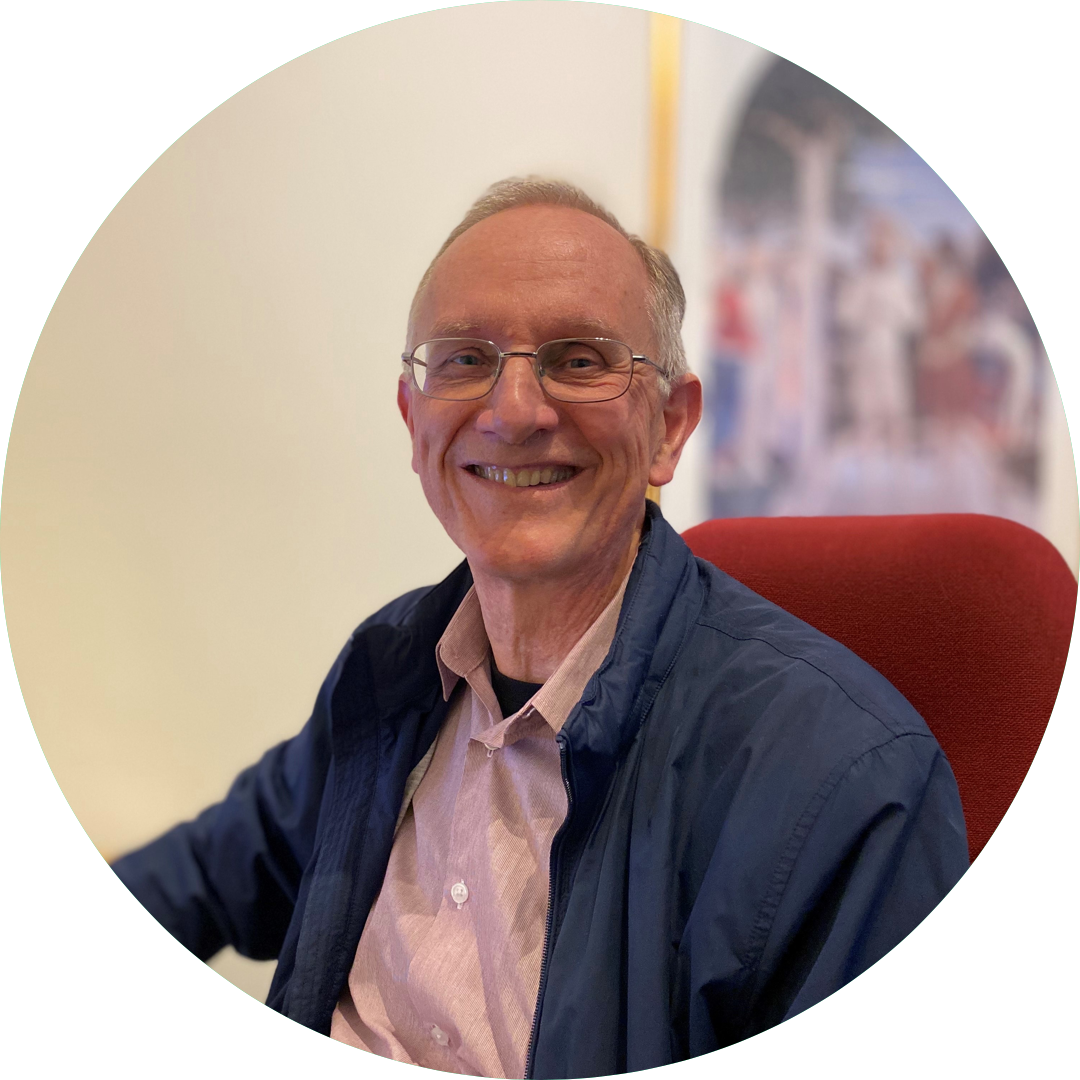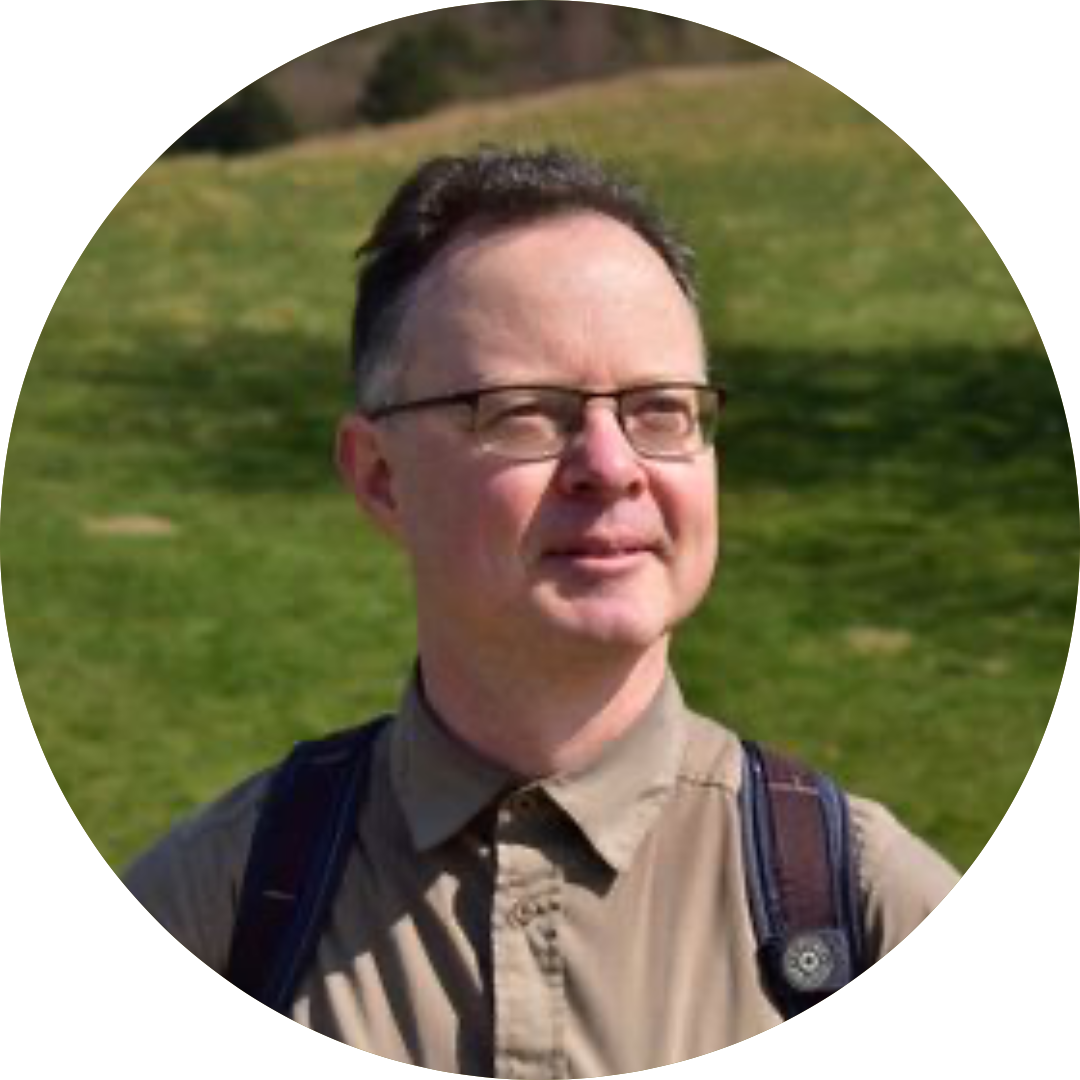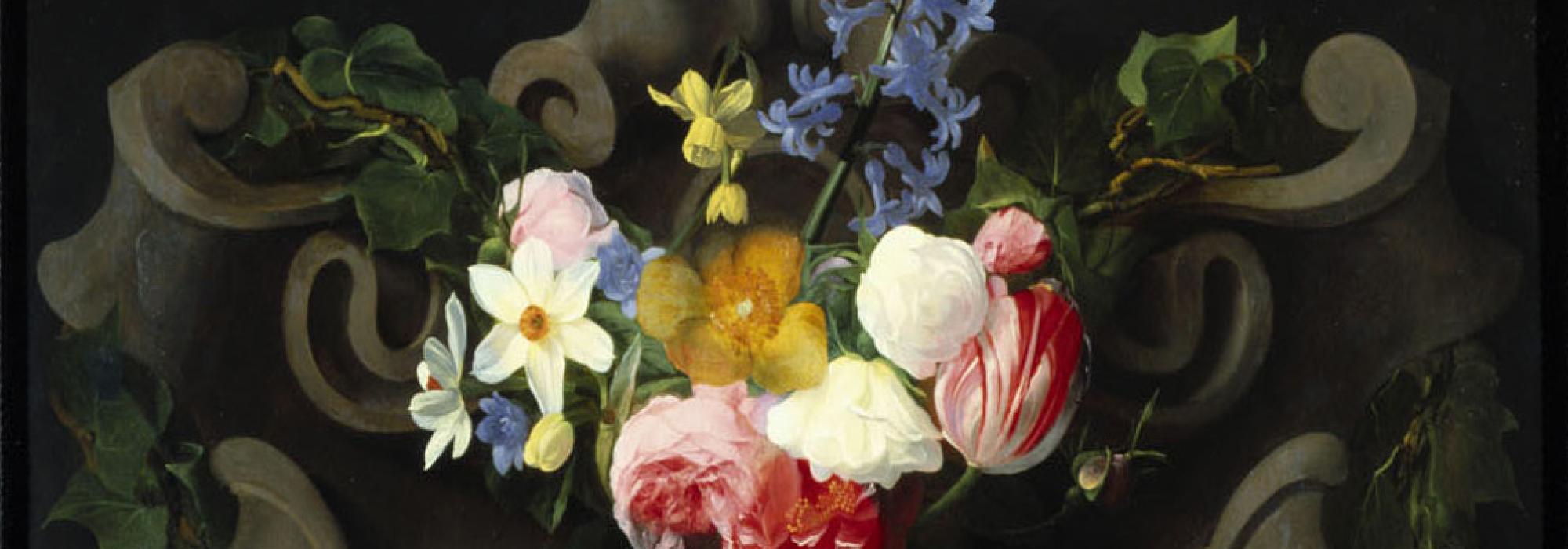Professor Peter Davidson
 Peter Davidson is Senior Research Fellow in Renaissance and Baroque Studies at Campion Hall and Curator of the Campion Hall Collection.
Peter Davidson is Senior Research Fellow in Renaissance and Baroque Studies at Campion Hall and Curator of the Campion Hall Collection.
Peter spent many years at the University of Aberdeen, as Professor of Renaissance Studies, teaching literature and art history, as well as having curatorial responsibility for the university’s five hundred years of library and museum collections. Before that he taught at the Universities of Warwick and, like many Scots before him, at Leiden in the Netherlands.
Much of his work has concerned the cultural life of the Recusant Catholic Community and the achievements of the Society of Jesus, especially the monograph The Universal Baroque, and the paperback edition of the complete verse of St Robert Southwell SJ in both English and Latin. His collaborative edition and translation of the illustrated description of the Wunderkammer of Athanasius Kircher at the Collegio Romano was published by St Omer’s Press/St Joseph’s University Press in 2015. He also has an identity as an original writer about landscape and art: The Idea of North (2005), Distance and Memory (2013), the cultural history of twilight The Last of the Light (2015), and The Lighted Window (2021).
He teaches in the English Faculty in Oxford, and is working on a major project to edit the complete surviving works of St Robert Southwell SJ for OUP.
Professor Agustín Udías SJ
 Agustín Udías SJ is Emeritus Professor at the Universidad Complutense de Madrid (UCM). He is the author of many papers about seismicity, seismotectonics of the Azores-Gibraltar, and the physics of seismic sources, and has also written several textbooks including Principles of Seismology (Cambridge University Press, 1999). Professor Udías has served as Editor-in-Chief of Física de la Tierra and the Journal of Seismology, and earlier as the Vice-President of the European Seismological Commission. He is a member of the Accademia Europeae, the Seismological Society of America, the American Geophysical Union, amongst other societies, and is a Fellow of the Royal Astronomical Society. His current research focuses on the history of science, the relation of science and religion, and the history of Jesuit contributions to science. Recent publications include Jesuit Contribution to Science: A History (Springer 2015).
Agustín Udías SJ is Emeritus Professor at the Universidad Complutense de Madrid (UCM). He is the author of many papers about seismicity, seismotectonics of the Azores-Gibraltar, and the physics of seismic sources, and has also written several textbooks including Principles of Seismology (Cambridge University Press, 1999). Professor Udías has served as Editor-in-Chief of Física de la Tierra and the Journal of Seismology, and earlier as the Vice-President of the European Seismological Commission. He is a member of the Accademia Europeae, the Seismological Society of America, the American Geophysical Union, amongst other societies, and is a Fellow of the Royal Astronomical Society. His current research focuses on the history of science, the relation of science and religion, and the history of Jesuit contributions to science. Recent publications include Jesuit Contribution to Science: A History (Springer 2015).
Marlis Hinkley
 Marlis Hinckley is a PhD candidate in the History of Science department at Johns Hopkins University in Baltimore, Maryland. Her research is on the history of science in colonial New Spain with a particular focus on gardens and plant-related knowledge. She is currently on a Fulbright fellowship for 2022/23 at the Universidad Nacional Autónoma de México, where she is working on archival research and collection contextualization at the Botanical Garden.
Marlis Hinckley is a PhD candidate in the History of Science department at Johns Hopkins University in Baltimore, Maryland. Her research is on the history of science in colonial New Spain with a particular focus on gardens and plant-related knowledge. She is currently on a Fulbright fellowship for 2022/23 at the Universidad Nacional Autónoma de México, where she is working on archival research and collection contextualization at the Botanical Garden.
Jane Cooper
 Jane Cooper is an Examination Fellow at All Souls College, Oxford. Her research interests include sixteenth-century religious poetry, especially Robert Southwell, Elizabethan and Jacobean verse and stage satire, and seventeenth-century atomisms and the translation and reception of Lucretius and Hobbes in Restoration Literature. She is currently working on a PhD entitled ‘Early modern English: classical and early modern atomism(s) and the sublime in late 17th and early 18th century poetry’.
Jane Cooper is an Examination Fellow at All Souls College, Oxford. Her research interests include sixteenth-century religious poetry, especially Robert Southwell, Elizabethan and Jacobean verse and stage satire, and seventeenth-century atomisms and the translation and reception of Lucretius and Hobbes in Restoration Literature. She is currently working on a PhD entitled ‘Early modern English: classical and early modern atomism(s) and the sublime in late 17th and early 18th century poetry’.
Professor Michael Hurley
 Michael D. Hurley is Professor of Literature and Theology, and a Fellow and Director of Studies in English at Trinity College, Cambridge. Michael works mostly on the writing, thought, and culture of the late modern period (c.1750-present). He is especially interested in form and style, and how qualities of 'literariness' can enable writers to say, think, or do things that could not otherwise be said, thought, or done. Much of his work has therefore an interdisciplinary edge to it, drawing on philosophy and theology to explore the connections between the way books and poems make us feel and what they invite us to understand. Above all, his research is directed towards ultimate questions and questions of value. He is currently working on three books: on the nature and counterintuitive value of 'superstition'; on the essential literariness of philosophical thinking; and on the theological status of angels within monotheistic religions. Michael is co-editor of The Hopkins Quarterly, a journal of critical, scholarly and appreciative responses to the lives and works of Gerard M. Hopkins, S.J., and his circle.
Michael D. Hurley is Professor of Literature and Theology, and a Fellow and Director of Studies in English at Trinity College, Cambridge. Michael works mostly on the writing, thought, and culture of the late modern period (c.1750-present). He is especially interested in form and style, and how qualities of 'literariness' can enable writers to say, think, or do things that could not otherwise be said, thought, or done. Much of his work has therefore an interdisciplinary edge to it, drawing on philosophy and theology to explore the connections between the way books and poems make us feel and what they invite us to understand. Above all, his research is directed towards ultimate questions and questions of value. He is currently working on three books: on the nature and counterintuitive value of 'superstition'; on the essential literariness of philosophical thinking; and on the theological status of angels within monotheistic religions. Michael is co-editor of The Hopkins Quarterly, a journal of critical, scholarly and appreciative responses to the lives and works of Gerard M. Hopkins, S.J., and his circle.
Dr Jan Graffius
 Jan Graffius, Curator of Collections and Historic Libraries at Stonyhurst College since 2001, has a worked for nearly 40 years in a variety of national and municipal museums in Scotland and England.
Jan Graffius, Curator of Collections and Historic Libraries at Stonyhurst College since 2001, has a worked for nearly 40 years in a variety of national and municipal museums in Scotland and England.
Jan has curated a number of exhibitions in Rome, France, Washington, Boston and in Britain. She has wide broadcasting experience and has published on a range of subjects notably on Relics and English Catholic Material Culture in the post-Reformation era. Recent work has included videos and podcasts relating to the creative role of recusant women in the 17th century, focussing on the extraordinary embroideries of Helena Wintour as part of the Hot Holy Ladies exhibition at Stonyhurst in 2022. She is currently working on a celebration of Stonyhurst’s First Folio for the 400th anniversary, with a series of exhibits highlighting themes from Shakespeare’s plays through artefacts.
Since 2007 Jan has been involved in a major conservation project working on the Martyr Vestments of Saint Óscar Romero and items belonging to the Jesuit Martyrs of the University of Central America.
Professor Fiona Stafford
 Fiona Stafford is Professor of English Language and Literature at the University of Oxford, a Fellow of the British Academy and a Fellow of the Royal Society of Edinburgh. She works on literature of the Romantic period, especially Austen, Burns, Clare, Keats, Wordsworth and Coleridge, and on their literary influences on modern poetry. Her research interests also include late eighteenth and early nineteenth-century culture; Irish and Scottish literature (post 1700); Archipelagic literature and art; Place and Nature Writing (old and new); Trees, Flowers and their cultural history; Environmental Humanities; literature and the visual arts.
Fiona Stafford is Professor of English Language and Literature at the University of Oxford, a Fellow of the British Academy and a Fellow of the Royal Society of Edinburgh. She works on literature of the Romantic period, especially Austen, Burns, Clare, Keats, Wordsworth and Coleridge, and on their literary influences on modern poetry. Her research interests also include late eighteenth and early nineteenth-century culture; Irish and Scottish literature (post 1700); Archipelagic literature and art; Place and Nature Writing (old and new); Trees, Flowers and their cultural history; Environmental Humanities; literature and the visual arts.
Her most recent book is The Brief Life of Flowers (2018). Like her acclaimed book, The Long, Long Life of Trees (2016), it draws on first hand observation, literature, art, folklore, mythology, cultural history, natural science, botany, and history of medicine.
Stephen Power SJ
 Stephen Power SJ studied engineering at Imperial College, London, and industrial relations at LSE. He joined the Jesuits in 1980. Since then, Stephen has worked for twenty years on refugee projects, twelve years in East Africa and four years at the international office in Rome. Between 2008 and 2019, he was Treasurer for the Jesuits in Britain (JiB), responsible for its investment portfolio. He continues to be the trustee covering responsible investment policy. He chairs the Jesuit Missions’ board which arranges grants with partners overseas for work related to justice, ecology and migration. He is on the JiB decarbonisation committee.
Stephen Power SJ studied engineering at Imperial College, London, and industrial relations at LSE. He joined the Jesuits in 1980. Since then, Stephen has worked for twenty years on refugee projects, twelve years in East Africa and four years at the international office in Rome. Between 2008 and 2019, he was Treasurer for the Jesuits in Britain (JiB), responsible for its investment portfolio. He continues to be the trustee covering responsible investment policy. He chairs the Jesuit Missions’ board which arranges grants with partners overseas for work related to justice, ecology and migration. He is on the JiB decarbonisation committee.
Geoff te Braake SJ
 Geoff te Braake SJ grew up in southern African towns and cities including Harare, Johannesburg and East London. He moved to England in 2000 and worked as a software developer before joining the Society of Jesus as a brother in 2010. After his novitiate he undertook theology and philosophy studies at Heythrop College before moving to Manchester, where he completed an MSc in Sustainability and Adaption at the Centre for Alternative Technology. His tertianship in Sri Lanka (2021) was followed by travel in South Asia. Geoff has had an interest in the natural world for much of his life, latterly particularly from the perspective of how he and other human beings relate to the other creatures around us, although this has mostly been from the context of a city-dweller with more experience of the human-made world.
Geoff te Braake SJ grew up in southern African towns and cities including Harare, Johannesburg and East London. He moved to England in 2000 and worked as a software developer before joining the Society of Jesus as a brother in 2010. After his novitiate he undertook theology and philosophy studies at Heythrop College before moving to Manchester, where he completed an MSc in Sustainability and Adaption at the Centre for Alternative Technology. His tertianship in Sri Lanka (2021) was followed by travel in South Asia. Geoff has had an interest in the natural world for much of his life, latterly particularly from the perspective of how he and other human beings relate to the other creatures around us, although this has mostly been from the context of a city-dweller with more experience of the human-made world.


